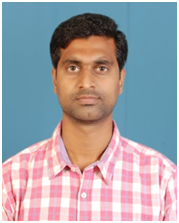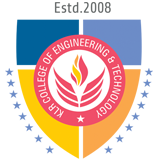

Electrical And Electronic Engineering
About Department
Electrical & Electronics engineering arena stands tall at the front facet of the newest technology. Moving beyond wires and circuits, the discipline now is taking giant strides as it Expanding into cutting-edge technologies. Electrical & Electronics Engineering department was established in the year 2009 offering B.Tech. Programme in Electrical and Electronics Engineering (EEE) with an intake of 60 in B.Tech.
Our department has the fine blend of dynamic and experienced faculty who provide quality education at UG levels. The department has dedicated faculties with a total of 19 teaching and non – teaching staffs. The faculty members are highly qualified and experienced in their areas of specialization. The department has well – qualified faculties who have publications in the reputed National and International Journals.
The department houses well equipped laboratories, while the short-term training programs, seminars, workshops, guest lectures by experts and student fests create better learning scope for students. The department also conducts career development programs, Seminars, Quiz, Industrial Visits, Paper Contests, Group Discussions, Guest Lectures, Career Guidance sessions and games to enhance interpersonal and intrapersonal skills of students.











Vision & Mission
Vision:
To become a Center of Excellence and source of cutting-edge technologies in Electrical and Electronics Engineering and allied fields
Mission:
M1: To enhance career and inculcate spirit of research attitude, foster entrepreneurship through emerging technologies and industry-institute interaction
M2: To impart high quality technical education with problem solving capabilities by innovative pedagogy in emerging technologies.
M3: To imbibe ethical values and leadership skills among student community.
Programs Offered
| SNO | COURSE | DURATION | SPECIALIZATION |
| 1 | Diploma | 3 years | Diploma in Electrical and Electronics Engineering |
| 2 | B.Tech | 4 years | Electrical and Electronics Engineering |
| 3. | M.Tech | 2 years | Electrical Power Systems |
About Head of the Department:

Dr RAKESH TEERDALA, M.Tech, Ph.D
Head of the Department
Dr. Rakesh Teerdala is an accomplished professional in the field of Electrical & Electronics Engineering, currently serving as an Associate Professor and the Head of the Electrical & Electronics Engineering Department at KLRCET. With a rich educational background and a wealth of teaching experience, Dr. Teerdala has made significant contributions to the academic and research communities. Dr. Rakesh earned his PhD in Power Systems from Jawaharlal Nehru Technological University-Hyderabad in 2018, showcasing his commitment to advanced research and expertise in his field. Prior to his doctoral studies, he completed his Master’s degree, M.Tech in Electrical Power Systems, from the same renowned institution in 2011. His educational journey began with a Bachelor’s degree in Electrical & Electronics Engineering from ADAMS Engineering College, Paloncha in 2009.
With a distinguished teaching career spanning 13 years, Dr. Teerdala has played an instrumental role in shaping the future of aspiring engineers. His teaching journey commenced in 2010 at Abdul Kalam Institute of Technological Sciences, where he served as an Assistant Professor. Over the years, he continued to impart knowledge and mentor students, working as an Assistant Professor at Mallareddy Engineering College for Women, Medchel, and also as a Teaching Assistant at JNTUH Hyderabad. His dedication and expertise have culminated in his current role as an Associate Professor and the Head of the EEE Department at KLRCET.
Dr. Rakesh’s research interests encompass a wide range of topics, including FACTS controllers, power electronics applications to power systems, optimization techniques, and power system operation & control. His contributions to the field are evident through his impressive body of work, which includes 2 Indian Patent Publications, 2 Text Books, and 27 National/International Journals & Conferences. His research not only adds to the knowledge base but also has practical applications in the realm of power systems.
